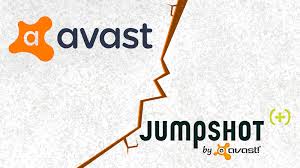
Avast wants to get rid of Jumpshot in the face of controversy
It seems that the cybersecurity firm no longer wants to take any more risks regarding its image that has really taken a hit lately.
"In December 2019, we quickly took the necessary steps necessary to meet the standards of browser extension shops and we are now complying with their requirements with regard to our online security extensions. At the same time, we have completely stopped using browser extension data for purposes other than the main safety engine, including sharing with our jumpshot subsidiary.
We make sure that Jumpshot does not acquire information personal identification, including name, email address or personal identification coordinates. Users have always had the option to refuse share data with Jumpshot. By July 2019, we had already started to put in place an explicit choice of acceptance or refusal for all new downloads of our software, and we are now inviting our free users to make a choice of acceptance or refusal, a process to be completed in February 2020.
Our privacy policy details the protections we set up for all our users. The latter can also choose to adjust their level of confidentiality using the a wide range of parameters available in our products, including control of any data sharing at any time. We comply voluntary to the requirements of the RGPD and the Protection of Health Act. California Consumer Privacy (CCPA) for our global user base as a whole.
We have a long history of protecting devices and user data from malware. We understand and take seriously the responsibility to balance users' privacy with the necessary use of data for our core security products. Avast reacted in the face of the various criticisms it had been the target of lately.
This article will also interest you: Avast, the cybersecurity company is accused of selling data from its users
As a reminder, it all really starts on January 27, since the publication of a study conducted by 2 online news platforms specializing in computer security, Motherboard and PCMag. A study in which he highlighted some of the company's cybersecurity practices that could be described as quasi-fraudulent. Indeed it would seem (and this has not been denied by Avast for that matter) that the latter marketed certain data of its users, generated by their activity on the web, through some different of these extensions, through its marketing subsidiary called Jumpshot.
Now facing pressure from public opinion, which has only increased in recent days, Avast has publicly announced that it will close its marketing subsidiary. "Because protecting users is Avast's top priority, we need to instill that value in all of our services and products," said the CEO of the cybersecurity company. Any practice to the contrary is unacceptable. For these reasons, I have decided, with the support of our Board of Directors, to end Jumpshot's data collection and to discontinue Jumpshot's operations. This decision takes effect immediately. »
Now access an unlimited number of passwords:
